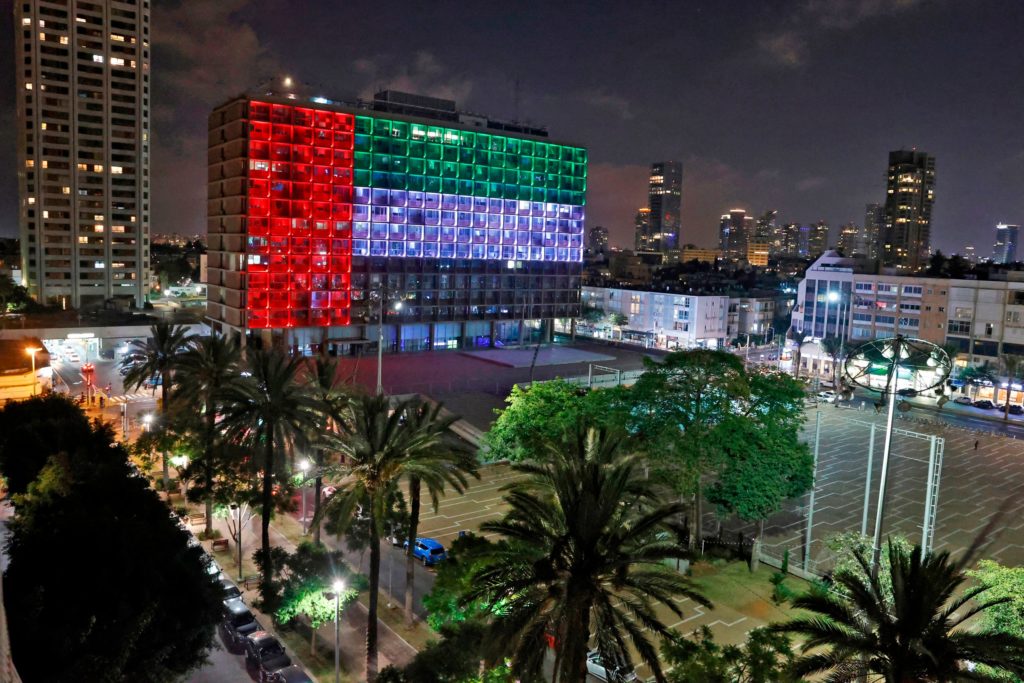Australia/Israel Review
Editorial: More than Normalisation
Sep 1, 2020 | Colin Rubenstein

Every supporter of peace, particularly in the turbulent Middle East, should applaud the recently announced normalisation agreement between Israel and the United Arab Emirates (UAE).
The UAE takes its place as the third Arab country to open diplomatic relations with the Jewish State, after Egypt (1979) and Jordan (1994).
However, the UAE deal, unlike those before it, grew not out of the cold, transactional “land for peace” framework of UN Security Council (UNSC) Resolution 242 that followed the 1967 Six-Day War, but a new model of “peace for peace” and shared mutual interests. It is the organic product of both economic opportunity and common security concerns, particularly vis-à-vis the threat to both countries from Iran through conventional warfare, proxy militias and terror groups, and nuclear weapon ambitions.
While the earlier treaties led to “cold” relationships focussed on security, borders and non-hostility arrangements, with few people-to-people contacts, the UAE promises Israel a warm, hospitable peace built upon a foundation of mutual respect and shared interests between historic regional neighbours.
But it represents even more than this.
Since 1967, generations of peace negotiators have built their careers around the principle that Arab acceptance of Israel could come only after the Palestinians make peace with Israel. They have now been proven wrong.
Over the decades, the Palestinians have repeatedly and flagrantly exploited the good faith and sympathy of their Arab neighbours, “vetoing” any normalisation as the keystone to a broader international campaign to question Israel’s right to exist, without regard for how this rejectionism might negatively affect the interests of the Middle East’s other nations.
The UAE’s shift toward normalisation therefore removes a major obstacle to a two-state peace, while simultaneously making a case for normalisation as a better way to facilitate Israeli-Palestinian peacemaking.
The UAE insists the normalisation deal dissuaded Israel from unilaterally extending sovereignty to areas of the West Bank, and in doing so, served the Palestinians’ best interests by helping safeguard the two-state Israeli-Palestinian peace paradigm. Perhaps. But more importantly, enlightened Arab leaders now have the chance to counsel the Palestinians regarding their current counter-productive rejectionist stance, and, while advocating for Palestinian interests, also talk directly to their Israeli counterparts about what can realistically be done to meet Israel’s essential security needs in any two-state peace.
As UAE Deputy Foreign Minister Omar Saif Ghobash told the Israeli daily Yediot Ahronot on Aug. 21, “We will not remain hostages to the internal problems of the Palestinians.” Ghobash said: “If the Palestinians cannot agree on a way forward – after [our] helping them repeatedly over the years – we need to choose the right path for us. This way can open up opportunities for the Palestinians and the Arab world and show them that there is nothing to fear.”
Meanwhile, US Secretary of State Mike Pompeo made state visits to Sudan and Bahrain in late August, hoping to capitalise on the momentum created by the UAE’s move. He is seeking to organise a regional summit in September to include Bahrain, Oman, Morocco, Sudan and Chad, alongside Israel and the UAE, and hopefully encourage one or more of these countries to follow the UAE’s example.
Discreet Israeli relations with Sunni Gulf states have of course been something of an open secret for some time now, and there have been many signs over recent years of these ties becoming deeper and more overt.
In other words, the UAE normalisation is the tip of a much wider regional iceberg of changing strategic thinking and a far-reaching re-alignment.
At a time when the United States is committed to drawing down the number of troops it bases in the region, the UAE and its Western-aligned regional allies are recognising the value of partnering more openly with Israel in their common goal of thwarting Iran’s expansionism.
Unfortunately, this determined diplomatic stance from the regional forces of stability – which provides support to the US’ “maximum pressure” approach to Iran to renegotiate the fatally flawed 2015 Joint Comprehensive Plan of Action (JCPOA) nuclear deal – is not being backed up by the European powers.
In the UN Security Council on Aug. 14, Europe – as well as Russia and China – allowed a US resolution to extend an arms embargo on Iran to fail, setting up a disastrous situation where, thanks to the JCPOA, Iran can freely modernise its arsenal after mid-October.
Likewise, Europe, Russia and China have signalled they won’t back the US right to activate the “snapback” provision to restore international sanctions on Iran under UNSC Resolution 2231, arguing that the US forfeited that right when it withdrew from the JCPOA in May 2018. However, this argument ignores both the plain language of Resolution 2231, and the arguments about how “snapback” would work made by then-US President Barack Obama back in 2015.
In the context of the apparent paucity of resolve by the UN Security Council to address blatant Iranian violations of the JCPOA and Non-Proliferation Treaty, the UAE’s move casts in sharper relief the alliances shaping today’s Middle East. There is every reason to hope it will empower the Western-leaning Sunni Arab side via more open ties with Israel, boosting stability, expanding cooperation on defence and intelligence affairs, trade, investment and joint technological development, modernisation and the potential for increased cross-cultural dialogue. Meanwhile, it should weaken the rejectionist forces determined to destabilise the region, especially Teheran and its Hezbollah proxy in Lebanon; the Assad regime; Turkey’s Islamist ruler Erdogan; Hamas and the Muslim Brotherhood.
The UAE-Israel deal is a hugely positive, watershed development. Australia has welcomed the deal, but it, and every other nation of goodwill, would be wise to offer any and all possible support to this epic and potentially profoundly promising regional reorientation.
Tags: Iran, Israel, Middle East, UAE






